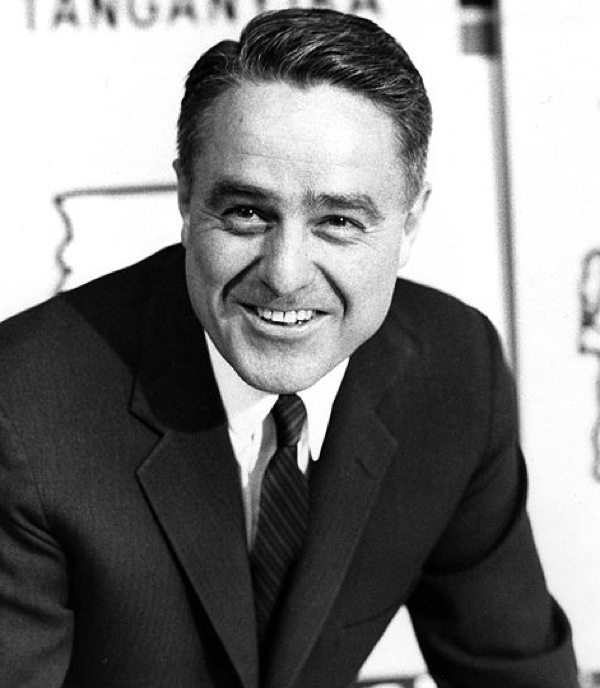Sargent Shriver, the first head of the Peace Corps, was related to President John F. Kennedy by marriage. He devoted his life to promoting the ideals of public service and peaceful dialogue. Israelis would do well to emulate his example
News of the death of John F. Kennedy’s brother-in-law Sargent Shriver on Tuesday made little-to-no impact in Israel. In fact I asked a few friends about it and most gave me blank stares. One asked back, “a sergeant in what army?”

Aside from the obvious irony of saying “Sargent” (or “sergeant”) in a country so defined by its military industry, I was struck by the contrast of Sargent’s legacy and the current political mess in Israel.
This week’s government reshuffling that involved Defense Minister Ehud Barak smelled of backroom deals. Compare this political maneuvering (and the public debate and bickering that have ensued) with the words uttered forty years ago by Sargent Shriver, the first director of the Peace Corps. “We cannot lead the world to peace if we have not led our people here at home to lives of peace. We cannot negotiate with the world if we cannot talk to each other.” What a lesson for Israel.
Shriver dreamt of a world where peace begins inside one’s borders. Shriver pushed for a country where dialogue was the norm. Shriver spoke of a people whose bravery was measured not by their ability to reject others but rather by their ability to embrace them. Again, what a lesson for Israel.
Last week the Reut Institute and The Marker held a conference in Jerusalem focusing on Israel’s strategy for the next 15 years. The targeted audience was dubbed “the serving elite.” Reut’s founder and director Gidi Grinstein says his goal is to transform Israel into a society that encourages (and rewards) public service, a country that takes its most gifted and talented individuals and grooms them for a life in the public sector. This is in stark contrast to the current method of operation in Israel, one that promotes capitalist drive and private sector expansion.
It is not that Israelis are selfish; quite the contrary. Most are just ill-informed of the benefits of collective public service. In this country service is defined as three years in the army plus annual reserve duties. Service is not defined in the launching of grassroots charities or one’s continued involvement in community building. It is not defined in outreach to foreign laborers or the creation and support of domestic abuse shelters. And beyond their borders, most Israelis see the world for the first time while carrying a backpack and not as volunteers in the Peace Corps (or even the Jewish Peace Corps … yes, there is such a thing).
While many Israelis volunteer, few make a career out of it and even fewer are fixated on the lack of proper funding for the public sector (and the long-term consequences). This is a problem propagated from the top down. The country’s leadership promotes the status quo that brought them to power. Indeed as Labor struggles to find another leader, I am left wondering where is Israel’s Shriver?
Many Israelis still believe that those who perform best in combat will do best in governance. This partially explains the link between military and government and why each is often an extension of the other. Indeed Barak’s time as a man-in-uniform usually validated his credentials as a man-in-office. More emphasis was placed on what he accomplished in the battlefield than what he accomplished behind a desk. And while I did not necessarily agree with Shriver’s politics – I was less than thrilled by his views on abortion – I always respected his actions. I was and will always remain inspired by his spirit of service.
In Hebrew the word “tzedakah” usually translates as “charity.” But the root of the word is “tzedek” or “justice.” Shriver believed in justice and Shriver believed in doing what was just. He was a “serving elite,” an idealist who was honored to serve his country in war but more importantly loved serving his country in peace. Israel needs a few less sergeants and a few more Sargents.
